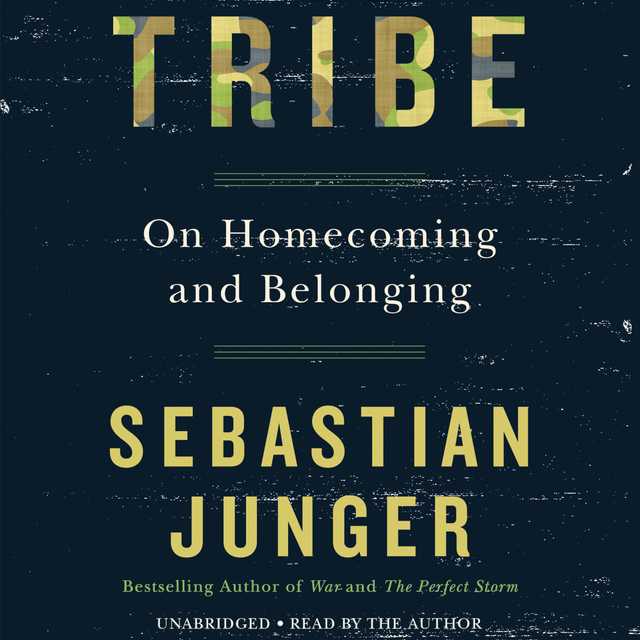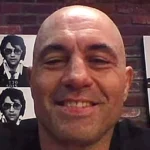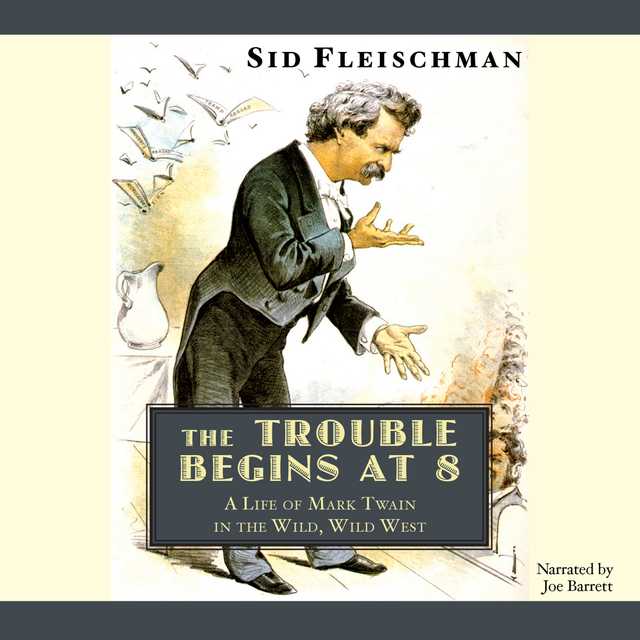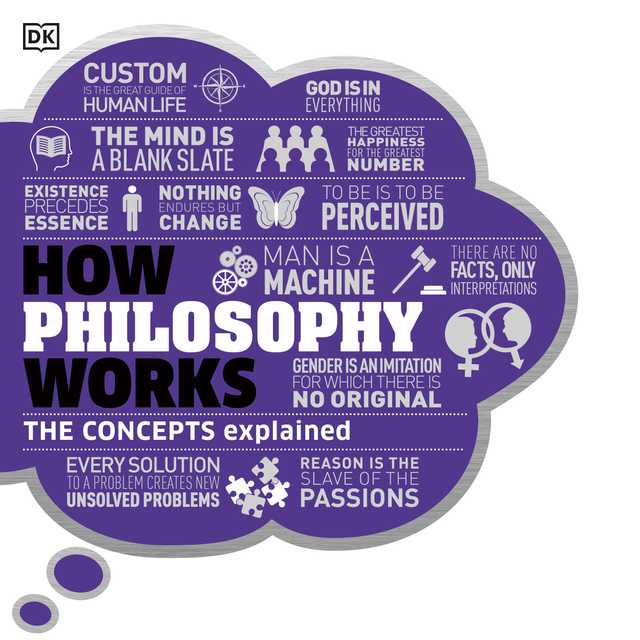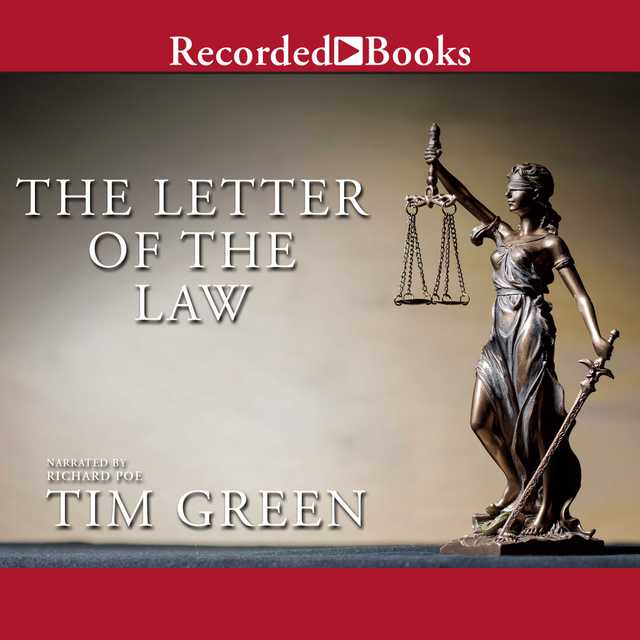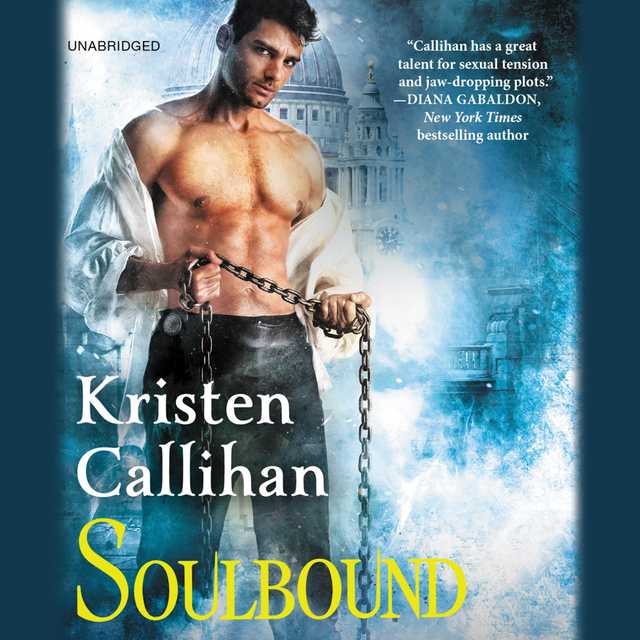Recommended by 1 experts
Tribe Audiobook Summary
Decades before the American Revolution, Benjamin Franklin lamented that English settlers were constantly fleeing over to the Indians-but Indians almost never did the same. Tribal society has been exerting an almost gravitational pull on Westerners for hundreds of years, and the reason lies deep in our evolutionary past as a communal species. The most recent example of that attraction is combat veterans who come home to find themselves missing the incredibly intimate bonds of platoon life. The loss of closeness that comes at the end of deployment may explain the high rates of post-traumatic stress disorder suffered by military veterans today.
Combining history, psychology, and anthropology, Tribe explores what we can learn from tribal societies about loyalty, belonging, and the eternal human quest for meaning. It explains the irony that-for many veterans as well as civilians-war feels better than peace, adversity can turn out to be a blessing, and disasters are sometimes remembered more fondly than weddings or tropical vacations. Tribe explains why we are stronger when we come together, and how that can be achieved even in today’s divided world.
Other Top Audiobooks
Tribe Audiobook Narrator
Sebastian Junger is the narrator of Tribe audiobook that was written by Sebastian Junger
About the Author(s) of Tribe
Sebastian Junger is the author of Tribe
More From the Same
- Author : Sebastian Junger
- Fire
- Freedom
- WAR
- Fire
- The Perfect Storm
- Publisher : Hachette Audio
- We're Speaking
- Win
- She Walks in Beauty
- 365 Thank Yous
- Witches of East End
Tribe Full Details
| Narrator | Sebastian Junger |
| Length | 2 hours 59 minutes |
| Author | Sebastian Junger |
| Publisher | Hachette Audio |
| Release date | May 24, 2016 |
| ISBN | 9781478936862 |
Subjects
The publisher of the Tribe is Hachette Audio. includes the following subjects: The BISAC Subject Code is History, Military, Iraq War (2003-2011)
Additional info
The publisher of the Tribe is Hachette Audio. The imprint is Twelve. It is supplied by Hachette Audio. The ISBN-13 is 9781478936862.
Global Availability
This book is only available in the United States.
Tribe is recommended by
Goodreads Reviews
Clif
March 14, 2017
This book provides a convincing articulation of reasons why modern society is ill suited to the innate social needs of homo sapiens (i.e. human beings). Our ancestors lived—and evolved—many thousands of years in hunter gatherer groups that were closely bonded together in a cooperative bond in order to survive dangerous surroundings. Everybody in the group knew that they were dependent on others, and the group expected loyalty, cooperation, and sharing of resources from individuals in the group. Modern society in contrast emphasizes competitive individualism, and the sharing of resources is generally limited to the family and sometimes extended family. The mismatch between this modern environment and innate human social needs can lead to clinical depression, anxiety and chronic loneliness.The book begins with observations made by American colonialists that there was something about the life of the indigenous peoples that was very attractive to some people of European ancestry. Benjamin Franklin observed the phenomenon in 1753, writing, “When an Indian child has been brought up among us, taught our language and habituated to our customs, yet if he goes to see his relations and make one Indian ramble with them, there is no persuading him ever to return.” In contrast to this there were many examples of kidnapped young whites who after living with the native Americans for several years did not want to return to white Colonial life. Colonial society was richer and more advanced, and yet people were voting with their feet the other way.On a personal note let me mention here that I had an ancestor who was taken captive during the French-Indian War and resisted returning to "civilized" life. THIS LINK is to my review of a historical novel based upon the facts of my ancestor's life. Next the book moves on to various examples of war and times of great stress during which rates of depression dropped, differences in status were erased, and a spirit of cooperation prevailed. The examples include the London blitz and Siege of Sarajevo. In these and other cases the author quotes people who lived through these horrific events who expressed nostalgia for the spirit of group common purpose that prevailed at the time.What those events have in common with aboriginal tribal life is the low differences in status and wide spread sharing of resources. These conditions are lacking in modern industrial societies. Then the book moves on to the experiences of American soldiers returning from combat in Iraq and Afghanistan. The prevalence of PTSD is way off the charts. The book explains that PTSD is primarily a maladjustment of return to American society. Veterans suffering from PTSD are having difficulty separating the danger of war from its pleasures. Returning soldiers are leaving an environment of group living where they have been sleeping and working together while being surrounded by danger. A close-knit group of fellow warriors returning to a highly individualised and fractured civilian world is “deeply brutalising to the human spirit”.The author then explains reasons why American life is probably the most difficult society in the world for a combat veteran to return to. He compares the incidence of PTSD in Americans with veterans of other nations—Israel in particular—and then explains reasons for the differences. The author points to the American disparity of wealth and income and the lack of jobs for returning soldiers as glaringly examples of lack of sharing and support in our society that differentiates it from a tribal society. The author makes scathing comments regarding the money market and fund managers who wrecked the economy in 2008 and received bonuses instead of prison sentences. The contrast described in this book between what's needed and what's actually provided to the returning soldier I found to be emotionally moving. Surprisingly, the author suggests that saying "thank you for your service" makes matters worse by reinforcing the differences between civilians and military. If you want to understand the author's reasoning on this issue I suggest you read the book rather than asking me to explain.Here's a link to a N.Y. Times article written by David Brooks published August 9, 2016 titled "The Great Affluence Fallacy" in which he references this book:www.nytimes.com/2016/08/09/opinion/th...I first learned about this book from the above article.Here's a link to another N.Y. Times article on a related subject titled "How Social Isolation Is Killing Us."https://www.nytimes.com/2016/12/22/up...
Sam
October 18, 2017
Is Western civilization the pinnacle of human achievement? In Tribe, Sebastian Junger questions this notion by looking at, among other examples, why colonial Americans left behind the burgeoning settlements to live with the tribal Indians; why, as technological advances have sped up over time (and accelerate still faster today), we are all “connected” and yet more and more of us feel isolated, depressed and unsatisfied with life in the Information Age; and why comfort is killing us and, rather than avoiding it, hardship and intense trauma like war can be the greatest and most cherished experiences life can offer. Loved it. Sebastian Junger’s done it again (check out his last book, War, for an equally remarkable and powerful read)! Tribe is a fantastic book that’s very relevant to our time, containing a lot of useful insights on our turbulent era. Junger manages to tackle the enormously complex and deeply important issue of societal disconnection, and break it down clearly, accessibly and compellingly. His thesis is that humans need three main things to be happy: struggle, community and purpose, and that the lack of these things in the West is why so many people today feel unfulfilled and directionless. And it’s a convincing argument, backed up with several fascinating examples. Junger covered the Bosnian war back in the ‘90s and went back to Sarajevo to interview the survivors who said that was the happiest time of their lives! Everyone was forced to live together, pool their resources so they could all survive, and all other worries were pushed aside as peripheral. And this is a sentiment echoed from survivors of the Blitz in WW2 to soldiers from the most recent Gulf war. There are also studies showing depression and suicide decrease in the wake of tragedies like 9/11 or devastating natural disasters. And it’s because you’re suddenly and viscerally reminded how small and trivial everyday bullshit is when you’re surrounded by death, deprivation and suffering and you realise what’s important is your common humanity with others around you. Junger talks about the military’s “brotherhood of pain” where soldiers are united by their circumstances which goes back to the plains Indians with their clearly defined roles and how there is a base need for this kind of close unity with others and a shared purpose in all humans. This need is ignored by most people in the West today to our psychological, emotional and physical detriment. In the words of anthropologist Sharon Abramowitz, today “we are an antihuman society”. The most striking observation Junger makes is how Western society needs to more fully recognise the military as part of the everyday rather than single it out as separate and other. He mentions how in other cultures, like in Israel where military service is mandatory, there’s far less post-traumatic stress disorder (PTSD) because that aspect of their society is a big part of ordinary life. Whereas in America soldiers are very clearly singled out, for better or worse, and that this distinction can be harmful when it comes to reintegrating back into civilian life. Because life is too comfortable now and most people don’t suffer violence or trauma (at least not on the same level as soldiers), we highlight those who do and view them as unfortunate victims, making them feel alienated from the rest of us. Obviously there are legitimate cases of PTSD among veterans but if the idea that all veterans are assumed to be victims with PTSD, it almost forces them into the role of victims in order to claim disability (disability claims have gone up inordinately for vets while casualties have gone down). This renders them useless going forward because they won’t be able to have jobs and disconnects them further from society and the country they fought for. Junger poetically notes that while these people were willing to die for their country, they don’t know how to live for it. Even if you don’t agree with Junger’s conclusions, which I absolutely do - and it’s hard not to, particularly with the recent case of the Las Vegas shootings; who else but someone so profoundly disconnected from his fellow man could do something so unthinkably brutal? And that’s just the latest atrocity - mass shootings have been an American fixture for decades now! - it’s worth taking to heart the egalitarian message. To make your community better for everyone by caring beyond our immediate family and close circle of friends, to stop focusing on our differences and look to our similarities, and realize that we could learn from less “civilized” societies, that the West haven’t gotten everything right. Technological change is great but it’s a mixed blessing; in many ways it’s made our lives better and, in some, worse. And as technology continues to rapidly change, year after year, it’s worth remembering that human nature doesn’t change as fast and that we shouldn’t ignore our basic nature and needs. Struggle and recognise it - you’re alive, this is temporary, so live while you have the chance. Help others because it’s right or for no other reason than to make yourself feel better. And in those actions, you’ll find purpose and satisfaction. I could go on a lot more but I’ll stop here and encourage you to read it for yourself, that is if any of this struck a chord. I found Tribe to be a fascinating, brilliant book full of thoughtful new ideas (to me at least) and rewarding and enlightening information with an inspiring message at its core.
Otis
February 08, 2017
A fascinating book about community and belonging, and how modern society has moved us away from our roots in potentially signifiant ways. The book opens with a thought provoking fact: in early America, there were numerous instances of white people joining primitive, native Indian societies - but zero instances of the opposite, because "the intensely communal nature of an Indian tribe held an appeal that the material benefits of Western civilization couldn’t necessarily compete with."The book also argues that the wealth we enjoy in modern society is isolating, against the grain of millions of years of our evolution, and can lead to depression, because our happiness is in large part rooted in a need to feel connected to others. While this feels right and intuitive, it doesn't seem to be the way we are optimizing our lives. "A wealthy person who has never had to rely on help and resources from his community is leading a privileged life that falls way outside more than a million years of human experience. Financial independence can lead to isolation, and isolation can put people at a greatly increased risk of depression and suicide. This might be a fair trade for a generally wealthier society— but a trade it is."Another loss the book points out is the loss of the transparency and social justice that being in a small community used to bring. When your neighbors and community members all know each other and what is going on with each other, group peer pressure tends to reward good actions and punish bad ones. The book points out that people wouldn't for instance cheat unemployment if their neighbors were paying for it and everyone knew what was happening. In anonymity we have lost a sense of responsibility to each other. Another data point about the power of human connection that a disaster, such as a war, can bring to a society. Junger talked about this in a recent guest post on the Goodreads blog, saying "Time and time again in history, civilians have forged incredibly strong bonds in the face of wars and earthquakes and floods and gone on to miss those heady times of cooperation. Also demonstrating the power of bonding is the fact that one of the most devastating thing a soldier can face is the loss of a buddy. "Interestingly, a strong bonding experience can also lead to social change - for instance: "The coming-together that societies often experience during catastrophes is usually temporary, but sometimes the effect can last years or even decades. British historians have linked the hardships of the Blitz— and the social unity that followed— to a landslide vote that brought the Labour Party into power in 1945 and eventually gave the United Kingdom national health care and a strong welfare state."The book basically concludes that the largest cost or risk of modern society is the loss of community. This is something worth giving a lot of thought in terms of our priorities.
Darwin8u
December 30, 2018
"The economic and marketing forces of modern society have engineered an environment...that maximize[s] consumption at the long-term cost of well being."- Brandon Hidaka, quoted in Sebastian Junger, Tribe In a series of four essays that grew out of an article Junger wrote in 2015 for Vanity Fair called How PTSD Became A Problem Far Beyond The Battlefield, Junger explores how we can learn from tribal societies about loyalty, belonging, the quest for meaning, and strategies for surviving the communal issues that the modern world thrusts on us. I liked this book more than I expected to. I was hoping for a series of essays written by a writer I respect for his clarity of prose and thought. Sebastian Junger holds a special place in my heart. He reminds me a bit of my little brother. They are both great writers, both have both written for Vanity Fair, share friends, share an affinity for Native Americans/American Indians* (my little brother loves the Jicarilla Apache). In fact Junger wrote a blurb for Matt's new book: American Cipher. So, it was nice to see part of the last chapter of this book deal (a bit) with Bowe Bergdahl. But more than seeing my little brother in this book (which I do; Matt is a combat vet with PTSD), it was nice seeing an author not just attempt to diagnose some of the ills of our nation (there are plenty), but actually explore interesting and relevant answers. sometimes, I feel Junger gets close to PTSD but still just misses it. I’m sure I would miss the mark a bit too (because combat-based PTSD is really ONLY experienced and understood by those who have lived the trauma of combat). Anyway, there are few politicians that are doing this, so it is nice when I see writers take a stab at ideas to help heal and "thread back" the core aspects that might not have been extinguished from our nation, but are certainly (except in instances of disaster, war, or violence) hidden.* I live in Arizona, roomed with a Navajo roomate my freshman year, have several Apache, Navajo, Métis, etc., friends. But I will be the first to tell you that I know so very little about so very much concerning these tribes that I am not going to claim to know if Junger gets things right, wrong, or insultingly wrong about some or all of his tribal information. Every year I try to learn more, become more exposed, and listen when I am corrected. What I can say, however, is I believe Junger's heart is directed in the right way and he is trying purposefully not to offend, but I'm always a bit nervous about claiming to know something I don't know.
Jean
December 19, 2016
I have read several articles recently about our society’s problems with individualism. When I saw Junger’s short book on the subject, I thought it might give me a more in-depth viewpoint on the subject, which it did.Junger tells of Benjamin Franklin’s 1753 observation that white prisoners of Native American Tribes when recused would run back to the Native American Tribe they had been with. But the situation never worked it reverse. Franklin concluded there was something wrong with our society.Junger primarily is addressing issues of the returning military personnel and the difficulties they have returning to civilian life. They have been an integral part of a “tribe” or unit then sent home and feel unwanted or needed as a civilian particularly if unable to obtain a job. He says our society honors individuals and being alone rather than being part of a cohesive group, village or tribe. Junger also discusses the bonding of civilians such as with the blitz in England or 9/11 in New York. He states that with WWII both military and civilians sacrificed for a common goal but that is not the case with the current war and the disconnect between civilians and military is widening. He claims we need to bond together in villages, groups and country; he claims that would reduce crime and mental illness.Sebastian Junger is a journalist and has been in many wars over the years. The book is well written and researched. His analysis and thoughts are clearly presented and backed with documentation. This is an interesting book and worth the effort to read. Junger narrates his own book.
Andy
April 02, 2018
A quirky little book about a big topic, much bigger than vets and PTSD, and American Indian tribes. Our entire society is sick because there's a lot of suicide and evil people get away with their assorted crimes. Civilization produces many benefits but many bad side effects as well because we keep throwing out the baby with the bathwater when it comes to the old ways. I believe him about the white settlers taken prisoner who were happier living with the indigenous American tribes, but it's not clear what that means for various reasons (Stockholm syndrome?, differences in those who stayed vs. left?, etc.) The author is on shakier ground still when he ventures into evolutionary biology. But I take this book as a long essay by a non-scientist. I think "Tribe" is worthwhile as a think piece because the issue of balance between old/new, natural/artificial, happy/wealthy, citizen/consumer, caring/tech, etc. is very important. What is the just middle? How can we be safe and happy? The pursuit of happiness for others is a worthy quest. We should decrease suicides if we can. But I don't want to go back to constant war and peril to accomplish that. Junger suggests we need new initiation rites and shared struggles. OK, fine. It seems like there are enough real problems in the world for that to be arranged without starting wars and other disasters. If we have to have overseas conscription, for example, does it have to be for war? Could it be for the Peace Corps, etc.?
Robin
May 20, 2016
There are many great books that I cannot wait to introduce to my customers - but then there are other books that I become obsessed with and so passionate for that I need to put it into every single person's hand that walks into my bookstore. Sebastian Junger's new book "Tribe" is one of those books. It is historical, psychological, anthropological and personal. I will think about this book for a very long time. It helped me to understand so much about war, about community, about self. Isn't that what a great book should do? It is so compact that you will want to read it in one sitting because trust me, you won't want to put it down. Junger is a true hero journalist who has done his research, asked the tough questions ,probed so much deeper than Americans care to look at our problems, our disgraces, our greed, our lack of justice and responsibility in order to begin the powerful work needed to save our country and ourselves!
Malia
April 01, 2019
This is a short book, but well worth reading. Junger's analysis of what makes a tribe and what brings people together and pulls them apart is very thoughtfully done. I read this right after David Wallace-Wells somewhat apocalyptic book about climate change, Uninhabitable Earth, and even though Junger isn't exactly cheery, I came away from the book feeling more hopeful. In the end, idealistic as I know it sounds, we have more in common than not. We want to be safe, want those we love to be safe and happy and healthy, and isn't that shared by just about everyone (with the exception of some truly awful people, that is)? Junger brings up the point that in today's society, there is a powerful focus on extrinsic values, which can manifest in materialism, whereas the intrinsic values are what ultimately make us happy or sad. He doesn't discount the fact that money and position can make life easier in many ways, but that it's not everything. My only criticism is that a lot of what he said could have been fleshed out a little more. That being said, I won't forget this book soon, I'm sure of that.Find more reviews and bookish fun at http://www.princessandpen.com
Chantel
February 27, 2016
Sebastian Junger takes us on a historical journey that is both anthropological and psychological in his latest work of non-fiction, Tribe. The age old cliche that history repeats itself is being realized in today's society and Junger presents many examples of this with warrior re-integration into their communities following traumatic conflict throughout history and their varied success rates at combating Post Traumatic Stress Disorder. Junger documents many of the thoughts today's veterans struggle with upon returning home to an individualist society that continues tear itself apart. Rather than face the issues at hand, our politicians (and citizen on the whole) point fingers towards one another that they are deliberately destroying the country. Meanwhile, our veterans continue to suffer with depression and suicide, as the ethnic and demographic boundaries that divide our nation, did not exist in their close-knit unit. Rather than returning to a normalcy contributing in their communities, many veteran's issues are simply being written off with a tax free check every month and a “Thank you for your service”, when all they really want is a sense of belonging. Unless we can forge those social bonds with a common goal, our veterans will no undoubtedly continue to suffer progressively the further America disjoints itself. Tribe is a quick read that makes one contemplate many of today's issues and the ancient driving forces of evolution that are the root of our two parties. This book should be at the top of everyone's summer reading list!
Jamie
October 18, 2022
Excellent, succinct, thought-provoking book.
aPriL does feral sometimes
July 12, 2016
"Today's veterans often come home to find that, although they're willing to die for their country, they're not sure how to live for it." -Sebastian Junger.Every veteran and visitor to a war-zone should read 'Tribe" when returning to their home country. Not only does the book connect the dots of being a feeling human being and a soldier, and illustrate briefly war experiences from history and more current adventures, it describes what sort of games an ex-soldier can expect from returning home after the drama and fear of being in war-zones. Homecomings might be a little less stressful and wrenching if the soldier understands what to expect - that some common reactions may occur and why, especially when the home country is one as self-involved, disengaged and selfishly affluent as the United States. People do not really get any long-term psychiatric help or advice about mental issues in America, only lip services of support are offered, coupled with vague promises and a moment of uncomfortable patting, usually while being handed a blurry much-copied list of out-of-date contacts for veterans, elderly and the handicapped, and/or directions to psychiatric services. It is a wonder most people get some help; and people should know that many people only need psychiatric help for a short time - PTSD CAN be short-term.Sebastian Junger's book can be read in a few hours, by the way. It may be short, but it is concise and surprisingly comprehensive, despite the few pages. In back is a section of source notes for further reading. There will be those who need to find follow-up advice, so this back section is very useful.Soldiers in war zones become cohesively tribal because first of all, its biologically instinctual, and because of the dangers. They learn to be focused on helping those in their units survive. Every member of their unit is vital to their well-being, important to their society. Life is a Big Deal, every friendship is worthwhile, a value beyond measure, thus a sacrifice beyond measure. However, unfortunate for soldiers, average Americans are trained to value individualism, and to value a consumerism designed to inculcate the philosophy of forever seeking competitive consumption of shiny stuff, and to seek and share the minutia of entertainment. Average Americans have memories as long as the next twitter because of our culture. Many ordinary Millennials, the latest generation of YA and soldier fodder, for instance, do not understand anything about World War II or the Vietnam War, and they have already forgotten there were two Iraq wars. Feelings about death and killing come mostly from watching movies and youtube videos, and sometimes the news (which most do not watch) and the emotions last as long until the next Instagram or Snapchat notification; at least, until they are sent away on their first rotation somewhere in a war-zone if they enlisted. I am a baby boomer, and I get caught up in minutia and shiny things, quickly moving on to the next cellphone notification or shopping coupon. The difference between me and younger generations is only the speed with which we can check our messages, plus, perhaps, a deeper awareness of death and loss from having lived longer and having experienced more drama and trauma. But I wouldn't count on it....One of the traumatic experiences common to modern American soldiers is the realization on returning to everyday America is that they find their fellow non-combatant consumer-mad countrymen shallow, petty and oblivious, quick to utter trite expressions without meaning it, such as "thank you for your service,", while in the next breath discussing how much other Americans (Democrats, Republicans, the rich, the poor, whites, non-whites, immigrants, women, men, educated elites, the 'parasite' poor, the police, the criminals, etc.) should be destroyed or shot. As Junger says, many ex-soldiers suddenly feel they had fought for their military unit, not Americans. At least, they feel they did not bleed and die for this silly culture they forgot existed - not this divided fretful loud ignorant celebrity-crazed bumper-sticker-politics America. However, personally, I think therapy can remind some soldiers such innocence in ordinary Americans is good sometimes, actually, and protecting this lack of comprehending what killing is about, and sometimes what killing the wrong people is like, and the fact that some killing is a joy, IS what the soldiers' sacrifice is all about; but certainly not in every case or circumstance. ( Junger does not talk about this, I simply know this from my own therapy. It is similar to hiding and editing violence and ugly stuff for beloved children - and sometimes a survivor wants to feel more normal by being with innocent people unaware of terror and horror. Sadness and hard-eyed awareness of death is not just a bitch and debilitating, it can be boring and tiring. Innocent people have a puppy cuteness which can be lovely. Sometimes.)Cocooned within their fighting unit, the soldiers had each other's backs in the war. The usual divides in American culture - race, sexual identity, class, wealth, education - were unimportant to their survival. Loyalty, friendship, common goals, familial acceptance, and sacrifice were what mattered. Then, later, the soldiers return to dull jobs, or worse, no jobs, and their actual families and neighborhood friends that they now cannot talk to (I can see the problem - how do you tell your religious mom, for example, that you accidentally killed a kid, or shot a guy who surrendered because he killed your best friend and you hadn't slept in four days or ate for three???), and see people walking about playing Pokemon on their cellphones. They miss the emotional closeness of their unit members, the thrill of surviving near-death (yes, it is addictive and an incredible high) and the feeling of the importance of their work and technical skills, and the feeling they are literally fighting for their country - because they were, and did.They come back to the shallow petty ugly reality of us, gentle reader.Do your war-zone veteran a favor, and offer this book as a gift - after you have read it. Show them you 'get' it.
Ron
April 11, 2016
An expanded version of an article that first appeared in Vanity Fair titled "How PTSD Became a Problem Far Beyond the Battlefield." Junger has matured as one of the finest American reporters in print. Thinking of him as "the Perfect Storm guy" is as reductive as thinking of Jon Krakauer only as "that guy that wrote Into Thin Air." In this work, Junger looks at community, tribal behaviors, and issues facing veterans while briefly weaving in personal experiences that help connect us to this work of history, anthropology and psychology along with social issues. My only criticism of this book is that he didn't expand it further.
Frequently asked questions
Listening to audiobooks not only easy, it is also very convenient. You can listen to audiobooks on almost every device. From your laptop to your smart phone or even a smart speaker like Apple HomePod or even Alexa. Here’s how you can get started listening to audiobooks.
- 1. Download your favorite audiobook app such as Speechify.
- 2. Sign up for an account.
- 3. Browse the library for the best audiobooks and select the first one for free
- 4. Download the audiobook file to your device
- 5. Open the Speechify audiobook app and select the audiobook you want to listen to.
- 6. Adjust the playback speed and other settings to your preference.
- 7. Press play and enjoy!
While you can listen to the bestsellers on almost any device, and preferences may vary, generally smart phones are offer the most convenience factor. You could be working out, grocery shopping, or even watching your dog in the dog park on a Saturday morning.
However, most audiobook apps work across multiple devices so you can pick up that riveting new Stephen King book you started at the dog park, back on your laptop when you get back home.
Speechify is one of the best apps for audiobooks. The pricing structure is the most competitive in the market and the app is easy to use. It features the best sellers and award winning authors. Listen to your favorite books or discover new ones and listen to real voice actors read to you. Getting started is easy, the first book is free.
Research showcasing the brain health benefits of reading on a regular basis is wide-ranging and undeniable. However, research comparing the benefits of reading vs listening is much more sparse. According to professor of psychology and author Dr. Kristen Willeumier, though, there is good reason to believe that the reading experience provided by audiobooks offers many of the same brain benefits as reading a physical book.
Audiobooks are recordings of books that are read aloud by a professional voice actor. The recordings are typically available for purchase and download in digital formats such as MP3, WMA, or AAC. They can also be streamed from online services like Speechify, Audible, AppleBooks, or Spotify.
You simply download the app onto your smart phone, create your account, and in Speechify, you can choose your first book, from our vast library of best-sellers and classics, to read for free.
Audiobooks, like real books can add up over time. Here’s where you can listen to audiobooks for free. Speechify let’s you read your first best seller for free. Apart from that, we have a vast selection of free audiobooks that you can enjoy. Get the same rich experience no matter if the book was free or not.
It depends. Yes, there are free audiobooks and paid audiobooks. Speechify offers a blend of both!
It varies. The easiest way depends on a few things. The app and service you use, which device, and platform. Speechify is the easiest way to listen to audiobooks. Downloading the app is quick. It is not a large app and does not eat up space on your iPhone or Android device.
Listening to audiobooks on your smart phone, with Speechify, is the easiest way to listen to audiobooks.

